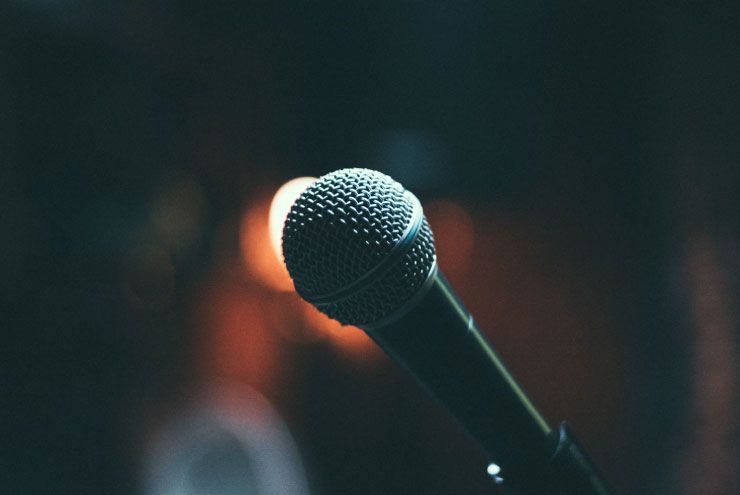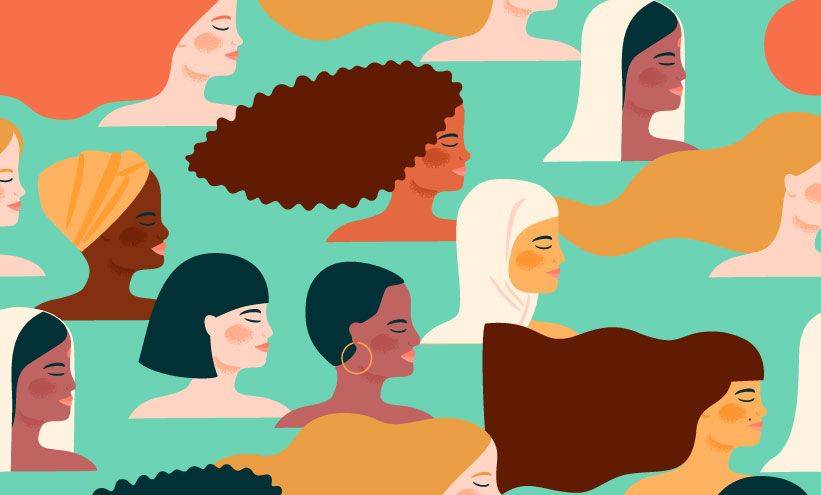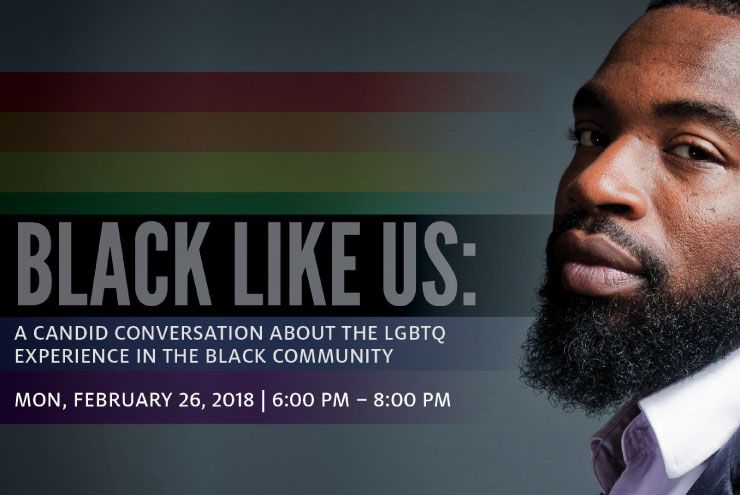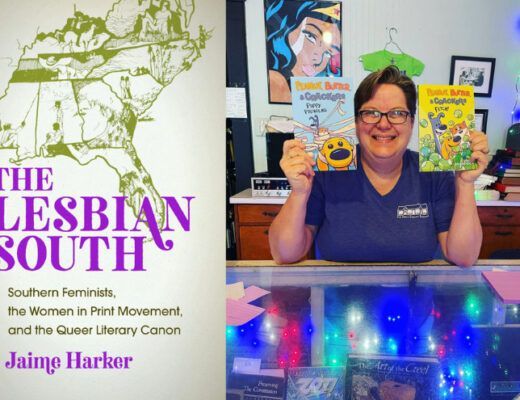By Chevall Pryce
After the spotlight locks onto the mic and the door to the back room shuts, host Bob Morrissey steps to the front of the jet black room with a Lone Star in his hand and a relaxed grip on the microphone. The lone disco ball spins in the dark above his almost impressively unkempt hair.
Within five minutes, Morrissey introduces the show with a story about how he managed to be more impressed with the Hitchcock film Strangers on a Train than with the lackluster Grindr hookup he had on his ex-boyfriend’s birthday.
Welcome to the Gay Shame Parade, a Houston-based bi-weekly comedy show hosted by queer comedians, open to all who dare to attend—nothing is off limits during this night of comedy, from jokes about gay gossip queens to the rise of robotic sex dolls.
Hosted at The Secret Group, the East Downtown performance venue and bar notorious for its comedy shows and occasional emo dance parties, the Gay Shame Parade invites comedians from across the spectrum—and the nation—to be their most authentic selves in any hysterical, raunchy, or queer way they please. Stand up comedians Bob Morrissey, Jamal Rahal, and Drew Hollway had the idea of creating a show centered around LGBTQ comics after performing at open mics in the area. “Jamal and Drew both started about two years ago and there weren’t really a lot of gay people doing stand up when I started, so we were just drawn to each other,” Morrissey says. “It’s the way all friendships happen with all people in the comedy scene. Once I start seeing somebody all of the time, I know they’re driven and committed to doing stand up and taking it seriously.”
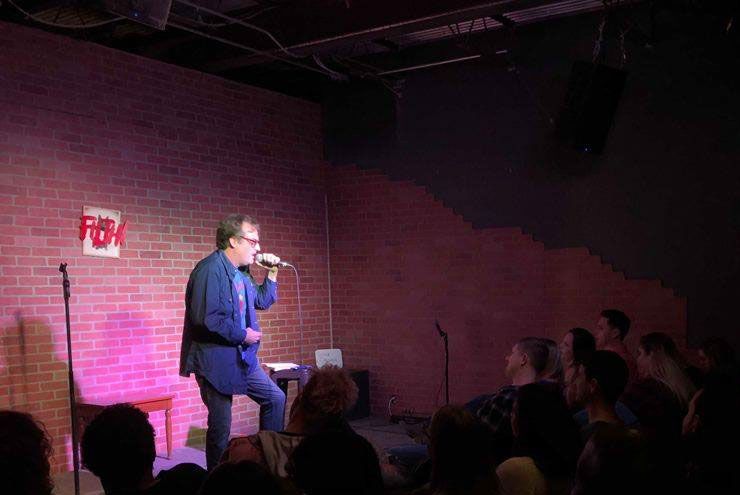
“I think people who aren’t gay can relate to the same kinds of fights that my ex and I would have. I don’t think gay jokes are that much different than straight jokes. You could switch the genders for any of my jokes and it would still be the same thing.” -Gay Shame Parade host Bob Morrissey
Since starting the show late last year, the Gay Shame Parade, which derived its name from the annual worldwide radical Gay Pride event, has gained a loyal following, with more attendees coming every week. The three leading comedians also invite a variety of comics from around the country to perform in each show—names such as the wonderfully deadpan Nathaniel Potts-Wells of Kentucky and the quick-witted and quirky Austinite Ashley Overton.
When it comes to the craft, none of the Gay Shame Parade comedians are aiming to be sensitive or morally admirable with their jokes; instead, they use the stage to vent about their daily frustrations in a hilarious manner with no punches pulled. Charming comedian and bisexual co-host Jamal Rahal kept the room howling as he described his experience of bringing a female date around his gay friends, imitating their judgmental reactions, then tackling the pure confusion from his straight friends who labeled him gay. The use of the word “shame” in the show’s title is for a comforting effect, rather than a way to make the queer community feel punished and deviant, the hosts explain.
Although the hosts are queer, Gay Shame Parade doesn’t deny straight ally comedians from performing—as the show’s tagline reads: “Stand up from gays, probable gays, and people we wish were gay.” Morrissey explains that the show would have less longevity if only LGBTQ comedians were allowed to perform, considering the small presence of gay comedians in the city. Additionally, the hosts try to book comedians that they see grinding nightly and consistently making an impression on audiences.
Morrissey adds that, in his opinion, the true value of being a gay comedian is the ability to relate to all people. “Just because I’m talking about a gay relationship, I’m not only talking about gay people,” he says. “I’m talking about relationships in general and my experiences being with one guy for 10 years. I think people who aren’t gay can relate to the same kind of fights that my ex and I would have. I don’t think gay jokes are that much different than straight jokes. You could switch the genders for any of my jokes and it would still be the same thing.”
At the end of the day, the Gay Shame Parade aims to create a space where comedians can comfortably hone their craft while being honest about their daily lives. With plans to expand the show beyond Houston and Texas, to invite more comedians, and to create merchandise for the cult following, Gay Shame Parade has only just dipped its toes into the waters of building a free, queer, raunchy experience. In the meantime, the hosts and comedians aim to simply be better performers and to keep the audience returning every show. “I think I would just be a lot creepier if I weren’t talking about being gay, the kind of stories I tell,” Morrissey laughs. “Also, being a 39-year-old man who’s just living in an efficiency apartment, I’d feel like much more of a loser.”
For more on the Gay Shame Parade, visit thesecretgrouphtx.com.


